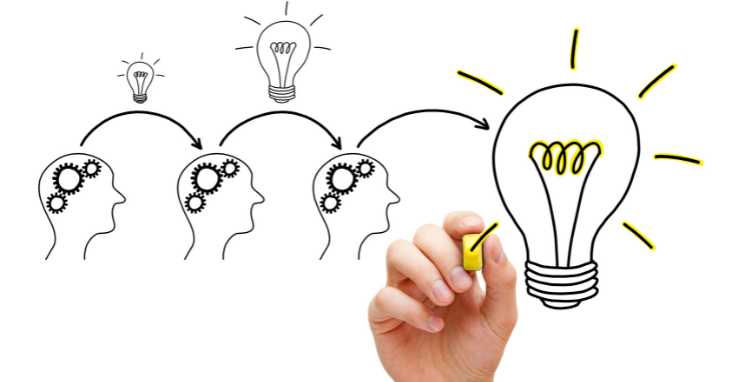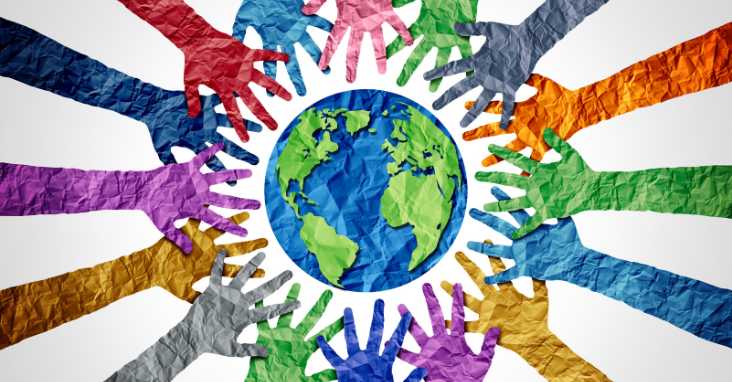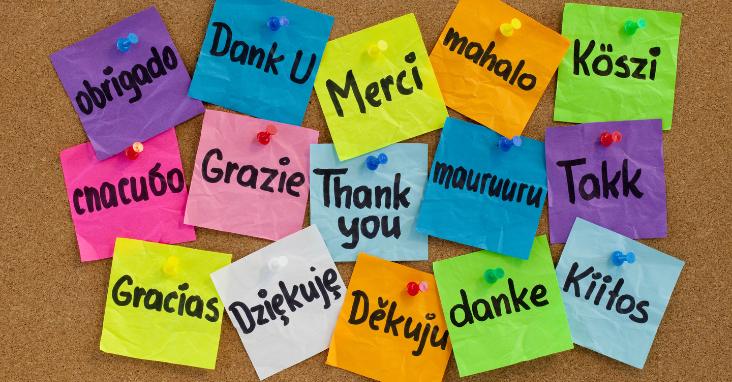Picture this: you’re drafting an email to a colleague on the same tier, making a request for some data you need by the next meeting. As you’re about to sign off, you hesitate. Should you say “thanks”? Or is “thank you in advance” more fitting? This may seem trivial, but such nuances in our communication can have profound implications for relationships and collaboration.
The phrase “thank you in advance” has become a staple in professional emails and correspondence. But what does it truly convey? What are the implicit expectations when you use it? How might the receiver feel? And are there any cultural or situational considerations you should be aware of? Today, we dive deep into the mechanics of this phrase, its history, and the debates surrounding its appropriateness.
“Thank you in advance” is more than a phrase; it’s a reflection of evolving communication styles, cultural nuances, and human psychology. This post explores its origins, implications, and the tools that aid effective communication in our digital era.
You can use it if you’re asking for assistance and you’re pretty sure the recipient is going to say yes because you’ve had an ongoing dialogue or your working relationship is already cooperative.

The Evolution and Rise of “Thank You in Advance”
The journey of “thank you in advance” is a fascinating tale of etiquette, adaptability, and the merging of cultures in an ever-connected world. It paints a picture of our evolving communication strategies as we’ve transitioned from face-to-face chats to the lightning-speed of digital interaction.
The Pre-Digital Era:
Before the proliferation of digital tools and electronic mail, the pace of communication was altogether different. Handwritten letters and face-to-face discussions dominated, and there was a tangible sense of patience in waiting for responses. Expressing gratitude in advance was not a common practice. Instead, people often used phrases such as “I would be grateful if…” or “I hope you can assist with…”. The act of thanking someone was usually reserved for after the request had been fulfilled.
Birth of Electronic Communication:
With the rise of electronic communication, particularly emails, the tempo of interactions drastically changed. People began expecting quicker responses and acknowledgments. There was a shift in the dynamics of patience, where the duration of waiting transitioned from weeks or days with traditional letters, to mere hours or even minutes with emails.
Origins in Business Etiquette:
“Thank you in advance” might have its roots in the business world, where efficiency and time-saving are highly valued. By expressing gratitude beforehand, there’s an implicit suggestion of trust and confidence that the recipient will act on the request. This pre-emptive thankfulness can streamline discussions, minimizing the need for back-and-forth correspondence.
Influence of Global Connectivity:
As international business became commonplace, there was a fusion of communication norms from different cultures. English, often a common denominator in global business, adapted and integrated phrases that might originate from various cultural etiquettes. “Thank you in advance” is possibly a byproduct of this melding of communicative styles.
Key points:
The evolution of “thank you in advance” correlates with technological advancements and the pace of communication.
The phrase potentially has its roots in business etiquette, emphasizing efficiency.
Globalization and cross-cultural interactions might have played a role in popularizing this term.
Its usage represents a shift in how we express gratitude and set expectations in our communications.

The Psychological Implications
When we dissect the phrase “thank you in advance,” we’re not just examining words, but delving into the psychology of human communication and how subtle shifts in language can impact our thoughts, feelings, and relationships.
The Halo of Positivity:
On the surface, “thank you in advance” is enveloped in positivity. Expressing gratitude is, after all, a universally encouraged behavior. It’s seen as a sign of good manners and has been linked to numerous psychological benefits, from boosting happiness to fostering social bonds. By thanking someone in advance, the sender conveys an optimistic expectation and shows trust in the recipient’s ability or intention to fulfill a request.
The Thin Line of Presumption:
While the phrase is rooted in gratitude, it carries a hint of presumption. It subtly insinuates an expectation that the request will be met, which can put pressure on the recipient. This is where context is critical. In relationships with established trust or where the task is routine, it may be seen as simple politeness. However, when the relationship is less established or the request is significant, the phrase can come across as presuming compliance without considering potential obstacles or the recipient’s feelings.
The Motivational Push:
For many, the phrase can act as a motivational cue. When someone expresses gratitude beforehand, it might create a commitment consistency in the recipient’s mind—a psychological principle where people want to act consistently with prior commitments or statements. Knowing that someone is already thankful and expecting a positive outcome might push the recipient to deliver on the request more diligently.
Potential for Misinterpretation:
Like all language nuances, “thank you in advance” isn’t immune to misinterpretation. Depending on one’s past experiences, cultural background, or current emotional state, it can be seen as anything from a polite gesture to a passive-aggressive demand. Recognizing this range of potential interpretations underscores the importance of being mindful and context-aware when using such phrases.
Key points:
“Thank you in advance” is imbued with layers of positivity, trust, and optimism.
It has the potential to motivate but also to presume.
Context, relationship dynamics, and the nature of the request greatly influence its reception.
The phrase’s versatility means it can be perceived differently based on individual experiences and perspectives. Being mindful of this can guide more effective and empathetic communication.

Branching Out: Alternative Phrases to “Thank You in Advance”
There are numour alternative phrases to “Thank you in advance” for situations where this closing is considered more presumptuous and less polite and you dont wish to put someone in an awkward position. “Thank You for Any Help You May Provide With” for example is a way you can express gratitude for the recipient’s time and effort.
If you’ve ever found yourself hesitant to use “thank you in advance,” you’re not alone. Depending on context and cultural considerations, it might not always be the best fit. If you want to steer clear of the potential misunderstandings this popular sign-off might create here are alternative expressions to convey gratitude and politeness without the preemptive commitment.
“I appreciate your help with this.” This phrase is direct, sincere, and doesn’t assume the favor has already been granted.
“Your assistance would be greatly valued.” Here, you’re acknowledging the importance of their contribution, placing value on their potential input.
“I’d be grateful for your support.” By expressing gratitude, you show appreciation while still keeping the request open-ended.
“If you can assist, that would be wonderful.” This is a more relaxed approach, subtly indicating that the request isn’t mandatory.
“Looking forward to your response.” This phrase indicates hopefulness without pressing for a specific outcome. This one’s probably best used by managers communicating with people they supervise
“Your insights on this would be beneficial.” Ideal for professional settings, it recognizes the recipient’s expertise without assuming they’ll provide it.
“Please let me know how you’d like to proceed.” By giving the recipient some agency, this phrase allows them to decide how best they can assist.
I specialize in helping marketers identify lead generation strategies at global events and think I could help your team increase leads by up to 35%. Could you point me in the right direction? “Thanks for any help you can offer”
Each of these alternatives offers a nuanced way to ask for assistance, express gratitude, or convey hope without directly assuming the action will be taken. The key is to match the phrase with the context and the nature of your relationship with the recipient.
Key points:
Multiple polite and appreciative alternatives exist to “thank you in advance.”
Each phrase carries its own subtleties and should be chosen based on context.
By diversifying our expressions of gratitude, we can communicate more effectively and empathetically.

Cultural Considerations
Language is a reflection of culture, and when a phrase like “thank you in advance” travels across borders, it inevitably encounters varied interpretations. These differences arise from deeply ingrained social norms, communication styles, and historical contexts.
Western Cultures:
In many Western societies, such as the US, Canada, or parts of Europe, “thank you in advance” has woven itself into the fabric of professional and sometimes even personal correspondence. It’s largely seen as a polite way to close requests or solicitations. However, even within these cultures, there’s a spectrum of opinions. While some view it as courteous, others might perceive it as a tad presumptuous or even passive-aggressive, especially if overused.
Eastern Cultures:
Venturing towards the East brings forth a kaleidoscope of interpretations. In certain Asian cultures, where indirect communication is more valued, the phrase might be seen as too forward or assuming. For instance, in Japan, where politeness and humility are deeply rooted in the language, thanking someone preemptively could potentially be perceived as putting undue pressure on the recipient. Similarly, in China, where relationship dynamics play a significant role, the context and the nature of the relationship would greatly influence how such a phrase is received.
Middle Eastern and African Perspectives:
In many Middle Eastern and African cultures, relationship-building and face-to-face interactions hold significant weight. Here, a phrase like “thank you in advance” might be seen as impersonal, especially if used prematurely in a relationship or without prior in-person interactions. Trust and mutual respect are foundational, so a phrase that might be seen as taking a future favor for granted could potentially miss the mark.
The Global Business Arena:
In today’s interconnected world, business is often conducted across diverse cultures. This necessitates an awareness of varied communication norms. “Thank you in advance,” while convenient and seemingly polite, can sometimes be a faux pas in international dealings. It emphasizes the importance of understanding and respecting diverse communication styles, especially when building new business relationships.
Key points:
Cultural backgrounds play a pivotal role in the interpretation of phrases like “thank you in advance.”
While widely accepted in some Western cultures, its reception can be quite varied in Eastern, Middle Eastern, and African societies.
The global business environment demands a heightened sensitivity to diverse communication norms.
Always consider the cultural background and the nature of your relationship with the recipient when using phrases that might carry cultural nuances.
This sign-off should be saved for a direct report

Software Tools for Effective Communication
In our fast-paced digital age, effective communication is more than just selecting the right words—it’s also about leveraging technology to enhance clarity, foster understanding, and bridge cultural gaps. Let’s explore a few ideas for some software tools that are revolutionizing the way we connect, converse, and collaborate.
Grammarly:
At its core, Grammarly is more than a spell-checker. It offers real-time feedback on tone, clarity, formality, and more. Especially useful for non-native English speakers, or when you’re trying to strike just the right tone, Grammarly can be an essential tool to ensure your message is both grammatically correct and contextually appropriate.
Tandem:
Aiming to bridge cultural and linguistic gaps, Tandem connects individuals wanting to learn languages with native speakers worldwide. By facilitating these exchanges, it helps users understand cultural nuances and idiomatic expressions, promoting genuine global understanding.
Slack:
As a collaborative workspace, Slack has transformed how teams communicate. Its integration capabilities with other tools, threaded conversations, and dedicated channels ensure that communication remains organized and efficient. It’s particularly beneficial for teams spread across different time zones or working remotely.
Zoom:
Video conferencing has become a mainstay in both professional and personal spheres. Zoom stands out for its ease of use, high-quality video, and features like breakout rooms and webinars. The face-to-face interaction it enables helps in gauging non-verbal cues, which are often crucial for effective communication.
Duolingo:
Learning a new language can open doors to understanding different cultures and communication styles. Duolingo gamifies the learning process, making it fun and interactive. It’s a handy tool for anyone looking to broaden their linguistic horizons and foster cross-cultural understanding.
Cultural Detective:
Specifically designed for the business environment, this tool aids in developing intercultural competence. Through simulations and real-world scenarios, it helps users navigate the complex world of global business communication effectively.
Key points:
Effective communication in the digital age is a blend of the right words and the right tools.
Grammarly and Tandem can be instrumental in refining language skills and understanding cultural nuances.
Slack and Zoom enhance team communication, especially in diverse and remote teams.
Duolingo and Cultural Detective cater to those keen on deepening their cross-cultural understanding and effectiveness.

FAQ
Is “thank you in advance” rude?
It depends on context and cultural background. It’s best to gauge the relationship and situation.
Can I use the phrase in any situation?
Not always. For sensitive or critical requests, a more personalized message might be better.
What are alternatives to “thank you in advance”?
Phrases like “I appreciate your help” or “Thanks for considering” can be good substitutes.
Why is tone important in written communication?
Since non-verbal cues are absent, tone helps convey emotion and intent.
Does everyone interpret “thank you in advance” the same way?
Interpretations can vary based on personal experiences, cultural backgrounds, and context.
Why should I consider cultural differences in communication?
It ensures effective communication, builds trust, and avoids misunderstandings.
Can software tools replace human judgment in communication?
They can aid, but human judgment is irreplaceable, especially in gauging emotions and nuances.
How can I be sure my message is polite?
Consider the receiver’s perspective, and when in doubt, seek feedback or rephrase.
Is “thank you in advance” outdated?
Not necessarily, but as with all phrases, its appropriateness varies by context.
Why does this phrase stir debate?
It walks a fine line between politeness and presumption, leading to varied opinions.

Conclusion
The power of words in shaping relationships and perceptions cannot be understated. “Thank you in advance” embodies the complexities of our evolving digital communication. While it can be a genuine expression of gratitude and positivity, its potential pitfalls, especially when interpreted as presumptive or demanding, cannot be ignored.
Effective communication goes beyond the words. It involves an understanding of context, cultural nuances, and the emotions behind the message. As we navigate the vast world of interpersonal interactions, both online and offline, let’s be mindful, reflective, and ever-curious about the profound impact of our words.
Key points:
“Thank you in advance” is both powerful and contentious.
Context, cultural nuances, and intent play a crucial role in its interpretation.
Strive for clarity, empathy, and understanding in all communication.















